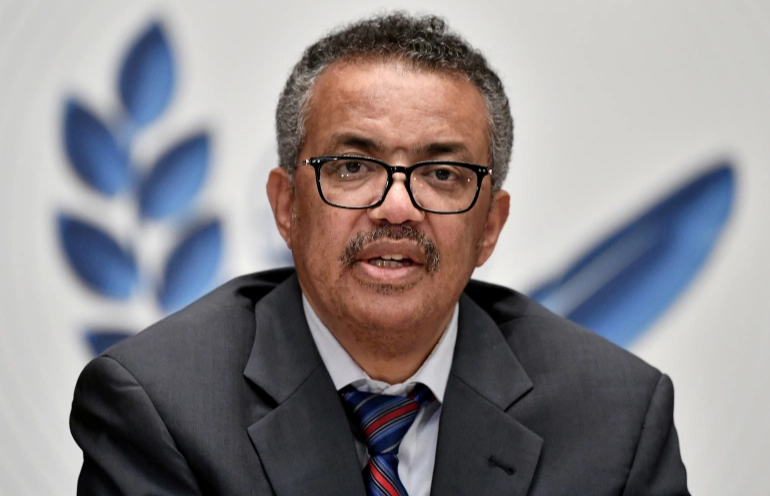
WHO urges rich countries to hold off on booster shots until 2022
Geneva, September 9 (RHC)-- The head of the World Health Organization (WHO) has called on wealthy countries with large supplies of coronavirus vaccines to refrain from offering booster shots through the end of the year, expanding an earlier request that has been largely ignored.
Speaking to journalists on Wednesday in Geneva, WHO Director-General Tedros Adhanom Ghebreyesus also said he was “appalled” at comments by a leading association of pharmaceutical manufacturers a day earlier who said vaccine supplies are high enough to allow for both booster shots and vaccinations in countries in dire need of jabs but facing shortages.
“I will not stay silent when companies and countries that control the global supply of vaccines think the world’s poor should be satisfied with leftovers,” he said, adding that low- and lower-middle-income countries were “not the second or third priority.”
“Their health workers, older people, and other at-risk groups have the same right to be protected.”
Dr. Tedros had previously called for a “moratorium” on booster shots through the end of September. But rich countries – including Israel, the United Kingdom, Denmark, France, Germany, Spain and the United States – have begun or are considering plans to offer third shots of two-dose vaccines to their vulnerable people, such as the elderly or those with compromised immune systems.
The WHO chief said he received a message of “clear support” from health ministers at a meeting of the influential Group of 20 countries this month for a commitment to help hit a target that all countries vaccinate at least 40 percent of their people by year’s end.
“A month ago, I called for a global moratorium on booster doses, at least until the end of September to prioritise vaccinating the most at-risk people around the world who are yet to receive their first dose,” Tedros said. “There has been little change in the global situation since then.”
“So today, I’m calling for an extension of the moratorium until at least the end of the year to enable every country to vaccinate at least 40 percent of its population,” he said.
About 80 percent of the 5.5 billion vaccines doses that have been administered globally went to high income countries, Tedros said.
Rich countries have also offered to donate one billion vaccine doses to other countries, but fewer than 15 percent of those doses have “materialised”, he noted, saying that manufacturers have pledged to prioritise a United Nations-backed programme to get vaccines to the neediest people in the world.
“We don’t want any more promises. We just want the vaccines,” the WHO chief said. Moreover, Tedros said almost all low-income countries had demonstrated their ability to run large-scale immunisation campaigns for polio, measles and other diseases.
“Because manufacturers have prioritised or been legally obliged to fulfil bilateral deals with rich countries willing to pay top dollar, low-income countries have been deprived of the tools to protect their people,” he said.
On Tuesday, the International Federation of Pharmaceutical Manufacturers and Associations said companies were now producing coronavirus vaccine doses at a rate of about 1.5 billion per month, so wealthy governments that have been sitting on stockpiles “no longer need to do so”.
“When I read this, I was appalled,” Tedros said. “In reality, manufacturers and high-income countries have long had the capacity to not only vaccinate their own priority groups, but to simultaneously support the vaccination of those same groups in all countries.”
Separately on Wednesday, the international organisations running COVAX, a global programme providing COVID-19 vaccines to poor countries, said it was on course to fall nearly 30 percent short of its previous goal of 2 billion shots this year.
The head of the GAVI Vaccine Alliance, among the sponsors of the COVAX vaccine-sharing facility, blamed the cut on a range of factors including export restrictions on the Serum Institute of India (SII) as well as on manufacturing problems.

